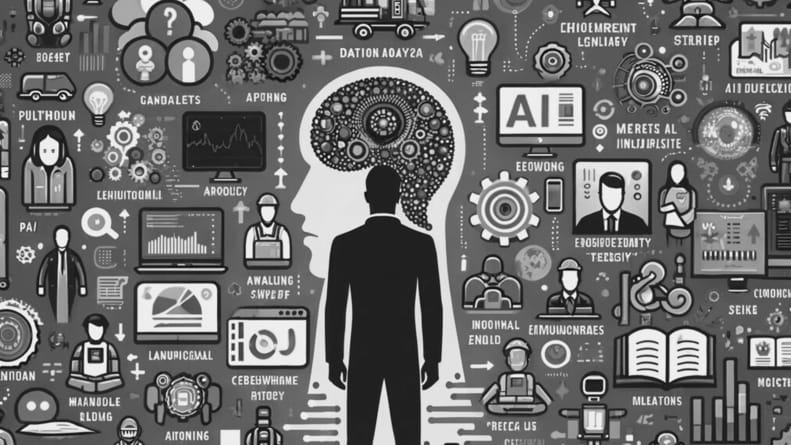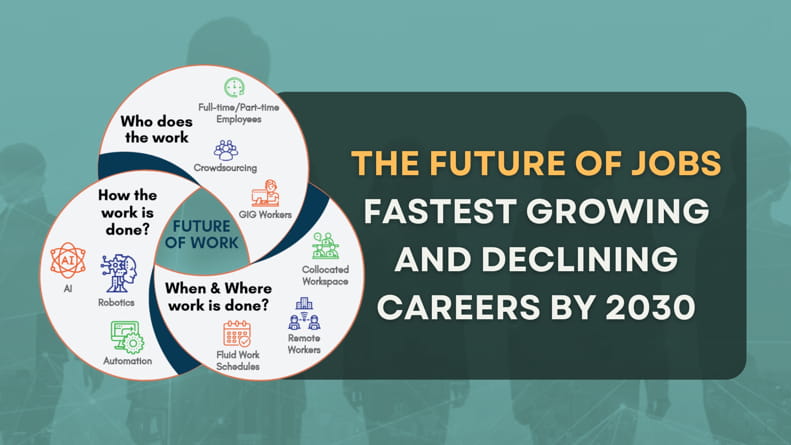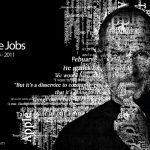In today’s rapidly evolving job market, technological advancements and shifting global trends are shaping the careers of tomorrow. The Future of Jobs Report 2025 highlights significant insights into the fastest-growing and declining jobs by 2030. From AI specialists to postal clerks, this transformation is a direct result of automation, digitalization, and environmental shifts.
Whether you’re a student planning your future, a professional considering a career pivot, or an employer anticipating hiring trends, or even a side hustler looking for extra income source, understanding these changes is crucial. Let’s dive into the data, analyze the trends, and explore what it means for the global workforce.
Top 15 Fastest-Growing Jobs by 2030
The rapid adoption of artificial intelligence, automation, and green technologies has fueled demand for specific skill sets. According to the report, these are the roles projected to grow the fastest by 2030:
| Rank | Job Title | Key Driver |
|---|---|---|
| 1 | Big Data Specialists | Explosion in data-driven decision-making |
| 2 | FinTech Engineers | Rise of digital finance and cryptocurrencies |
| 3 | AI and Machine Learning Specialists | Automation and AI adoption |
| 4 | Software and Applications Developers | Expanding digital ecosystems |
| 5 | Security Management Specialists | Cybersecurity threats |
| 6 | Data Warehousing Specialists | Need for structured and accessible data |
| 7 | Autonomous and Electric Vehicle Specialists | Growth in sustainable transportation |
| 8 | UI and UX Designers | User-centered product development |
| 9 | Light Truck or Delivery Services Drivers | Booming e-commerce logistics |
| 10 | Internet of Things (IoT) Specialists | Connected devices revolution |
| 11 | Data Analysts and Scientists | Business intelligence needs |
| 12 | Environmental Engineers | Demand for sustainable infrastructure |
| 13 | Information Security Analysts | Increasing cyber threats |
| 14 | DevOps Engineers | Cloud computing and agile methodologies |
| 15 | Renewable Energy Engineers | Global shift toward renewable energy |
Key Takeaways:
- AI, Big Data, and IoT are driving the demand for tech-savvy professionals.
- Sustainability and green energy initiatives are creating new roles in environmental engineering and renewable energy.
- Logistics and delivery services continue to thrive due to the e-commerce boom.
Top 15 Fastest-Declining Jobs by 2030
Automation and digitalization are also rendering some roles obsolete. The following jobs are expected to see the steepest decline by 2030:
| Rank | Job Title | Key Reason for Decline |
|---|---|---|
| 1 | Postal Service Clerks | Digital communication |
| 2 | Bank Tellers and Related Clerks | Rise of online banking |
| 3 | Data Entry Clerks | Automation of repetitive tasks |
| 4 | Cashiers and Ticket Clerks | Self-service checkouts |
| 5 | Administrative Assistants and Secretaries | AI-powered administrative tools |
| 6 | Printing and Related Trades Workers | Digital media replacing print |
| 7 | Accounting, Bookkeeping, and Payroll Clerks | Automated accounting systems |
| 8 | Material-Recording and Stock-Keeping Clerks | Robotics in inventory management |
| 9 | Transportation Attendants and Conductors | Autonomous vehicles |
| 10 | Door-to-Door Sales Workers | E-commerce growth |
| 11 | Graphic Designers | AI-based design tools |
| 12 | Claims Adjusters and Investigators | AI in insurance claim processing |
| 13 | Legal Officials | Automation in legal research |
| 14 | Legal Secretaries | AI-based legal document preparation |
| 15 | Telemarketers | Shift to digital marketing strategies |
Key Takeaways:
- Automation and AI are replacing routine, repetitive tasks.
- Digital transformation is reshaping roles in media, sales, and customer service.
- Traditional clerical roles are rapidly declining in favor of more efficient technologies.
The Driving Forces Behind These Changes

1. The Rise of AI and Automation
The integration of AI across industries has streamlined operations, leading to:
- Cost reductions for businesses.
- Efficiency gains in manufacturing, logistics, and customer service.
- Jobs requiring creativity and critical thinking becoming more valued.
2. Sustainability and Green Technology
As governments push for net-zero emissions by 2050, industries are prioritizing sustainable solutions. The renewable energy sector alone is expected to grow at a CAGR of 8.4% from 2023 to 2030 (IEA).
3. Digitalization Across Industries
From banking to media, every industry is undergoing digital transformation, leading to the automation of manual processes and the rise of tech-based roles.
What This Means for Job Seekers
Skills to Learn for Future-Proof Careers
- Data Analytics: Tools like SQL, Python, and Tableau are increasingly in demand.
- Cybersecurity Certifications: With cyberattacks rising by 38% year-over-year in 2024 (Check Point Research), certifications like CISSP and CEH are valuable.
- AI and Machine Learning: Familiarity with TensorFlow, PyTorch, and other frameworks is critical.
- Sustainability Expertise: Knowledge of renewable energy systems and environmental compliance will set candidates apart.
Industries to Watch
- Technology: The cornerstone of innovation and growth.
- Healthcare: AI is also transforming diagnostics, telemedicine, and medical device development.
- Renewable Energy: A lucrative field due to global climate initiatives.
The Global Job Market in Numbers
| Metric | Figure (2023) | Projected (2030) |
|---|---|---|
| Global Unemployment Rate | 5.3% | 4.8% |
| AI-Driven Job Growth | 15 million new jobs | 25 million new jobs |
| Jobs Lost to Automation | 8 million jobs | 12 million jobs |
| Renewable Energy Jobs | 12.7 million jobs | 19.5 million jobs |
(Source: World Economic Forum)
How Employers Should Prepare
1. Reskilling and Upskilling Programs
Companies must invest in training employees for emerging roles. According to LinkedIn, 94% of employees would stay longer at companies that provide learning opportunities.
2. Embrace Flexibility
With the rise of remote work, freelancing gig economy, which is offering flexible schedules and hybrid work models can attract top talent.
3. Collaborate with Educational Institutions
Partnering with universities to design industry-relevant curricula ensures a steady supply of skilled talent.
How Businesses to Be Prepare for Workforce Management
The shift in job trends is already affecting businesses worldwide. According to a 2025 report by the World Economic Forum, over 40% of companies are facing challenges in filling roles in data science, AI, and renewable energy due to a lack of skilled talent. Meanwhile, industries relying on declining jobs, such as retail and administrative support, have reported a 20% drop in productivity due to outdated processes. Adapting to these changes is no longer optional—it’s a critical factor for business survival in this rapidly transforming economy.
Businesses must adopt advanced workforce management tools and AI-driven analytics to predict talent needs, optimize resource allocation, and improve productivity. These tools can help identify skills gaps, streamline recruitment, and ensure employees are assigned roles that maximize their strengths. Furthermore, embracing automation for routine tasks allows human resources to focus on more strategic functions, fostering innovation and adaptability within the organization. Companies that integrate technology into their workforce planning will have a competitive edge in navigating the rapidly evolving job landscape.
The Road Ahead: Adapting to Change
The data paints a clear picture: roles centered around innovation, technology, and sustainability will dominate the future job market. On the flip side, traditional and repetitive roles will see a steep decline.
For individuals, the key to thriving lies in adaptability, continuous learning, and a focus on high-demand skills. For organizations, embracing change and fostering innovation will ensure survival and success in this competitive landscape.








2 Responses
AI will going to be independent and self driven. How this will going to effect humans?